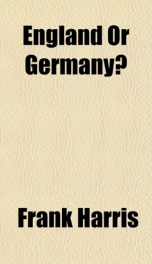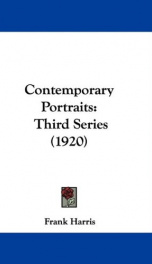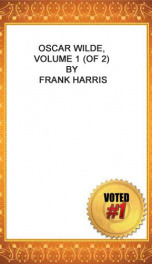england or germany

Purchase of this book includes free trial access to www.million-books.com where you can read more than a million books for free. This is an OCR edition with typos. Excerpt from book: The Conflict of Ideals: English and German Lord Bryce asserts that this war is a conflict of the two ideals of England and Germany. There is a great deal to be said for his statement, though he may not be satisfied with the scientific definition of it. Let us examine it impartially. And, first of all, what is the English ideal? There are two chief ways of looking at England as at all other countries; as she sees herself and as others see her. Mr. Arnold Bennett has given us a picture of her as she sees herself, while the poet Heine long ago gave us a noteworthy picture of her as others see her. Mr. Arnold Bennett simply asserts that England stands for freedom and free institutions, while Germany is under the heel of a frightful military despotism which threatens the peace of mankind. Mr. Bennett knows no German. When I asked Mr. H. G. Wells recently: what he knew about Germany that he should condemn her so absolutely, he told me that his son's tutor had been a German. Sir Edward Grey was not ashamed in a speech made so late as March 22nd, to declare that "the German ideal is that the Germans are a superior people to whom all things are lawful and against whom resistance is unlawful." It is impossible to take such ignorant partisanship seriously. It reminds me of what Doo- ley said to Hennessy at the beginning of our war with Spain, "I don't have any more use for thim Spaniards than what you have, Hin- nessey; I've never known one of 'em." It is necessary to know a nation before one talks of it; and the better we know men, the more disinclined we are to lump a whole people together in eulogy or condemnation. Burke declared that it was impossible to frame an indictment against a nation. Mr. Arnold Bennett appears to be ignorant of the fact that of the nations now a...
Info about the book
Author:
Series:
Unknown
ISBN:
1279277467
Rating:
3/5 (2)Your rating:
0/5
Languge:
English
Users who have this book
Users who want this book
What readers are saying
What do you think? Write your own comment on this book!
write a commentGenre
if you like england or germany try:
Other books by this author
Do you want to exchange books? It’s EASY!
Get registered and find other users who want to give their favourite books to good hands!








